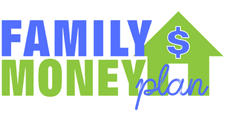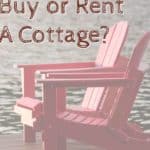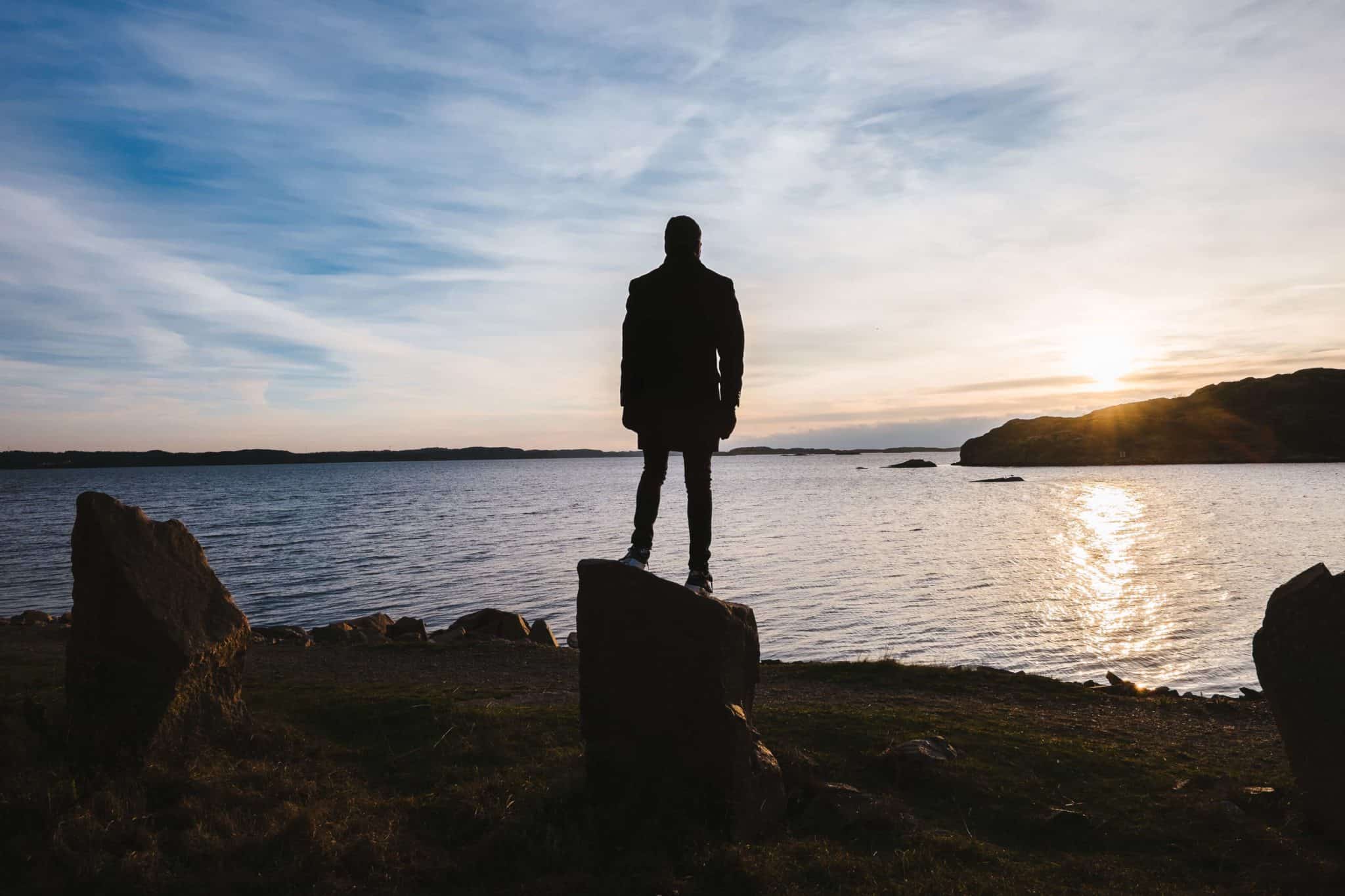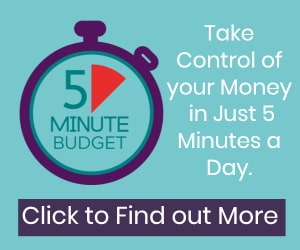Have you ever dreamed of owning your own cottage? A place where you can go and escape the buzz of the city and enjoy a simpler life?
More and more people we know seem to be buying into the idea of a second home. Usually in the form of a cottage. A place they can go on the weekends when the weather gets nice and enjoy for the summer months. We were lucky enough to go to a friends cabin this past month and I found myself looking up cabins for sale on the local realtor sites.
When out of nowhere my smarter twin jumped out of the bushes with a megaphone and shouted “Put your phone down and step away from the debt.”
Ok, that last part didn’t happen. But the thoughts of having our own summer place did cross my mind.
While I love the idea of a cottage, I lean more towards travelling the world than owning a second place. It’s not to say that my thoughts won’t change. But for now I’m more focused on other things than buying another place. Before I go any further, I will add that I was fortunate enough to grow up with a family cottage, I just think it’s fair you know my bias coming into this.
Should You Buy or Rent a Cottage? Let’s Run the Numbers…
Let’s say a cottage costs $100,000, which seems to be pretty low, but hey, it’s a round number and we all like those.
Because it’s a second home, you likely won’t be able to get a mortgage. If you have enough room from the equity in from your house, you could use a home equity line of credit.
For simplicity let’s say you buy and finance it in full with $100,000 on your home equity line of credit (this is not an endorsement to do that). For easy numbers let’s also say you are paying 3% interest on your loan.
That means you are paying $3,000 in interest the first year to own your cottage. That’s before electricity, insurance, property taxes, maintenance, water (often not a cost but can be), and any other municipal charges.
Year 1 Costs of Owning Your Cottage
If you manage to find a mortgage, your out of pocket monthly mortgage payment is $470. Do that 12 times and you are paying $5,640 (like we mentioned the interest on loan is approximately $3,000).
Property Taxes: $1,000 (I’m using a 1% of purchase price)
Insurance: $1,000 (again using 1% of purchase price)
Utilities: $50/month $600/year (this could vary wildly but from what I have heard this is very low depending on where you are)
Days of use: Weekends from May long through Labour day plus two weeks of holidays let’s say 50 days (again round numbers)
Total Cost $8,240 / 50 = $164 a day
Year 1 Cost of Renting a Cottage
Compare this to the cost of renting a cottage and it’s definitely cheaper. Doing a quick look around and you can easily rent one locally for around $1,000 a week (there is those round numbers again!)
Renting a cottage for a week $1,000 / 7 = $142/day
Cost Winner: Renting
Total out of pocket for owning a cottage is $8,240 ($2,640 is principle pay down) compared to the cottage rental of $1,000. Renting a cottage is far more economical than buying if you are only going for one week. If you are going for mutilple weeks it will change. Still I would rather be out of pocket once for $1,000 than yearly for $8,240.
But life isn’t just about the numbers as we all know.
(One other thing is that I left out any repairs and maintenance or other gateway spending that will inevitably happen with a cottage {think boats, water toys, and other lake related accessories} I also left out driving to the cottage for all those weekends, these are just the basic numbers you would have if you bought a place and held it for a year without going).
What About The Cottage Going Up In Value?
The biggest thing I hear is that a cottage can go up in value. The “it’s an investment” argument is a common justification. Going with historical patterns, they may be right. With the baby boomers getting into their spending phase of life, a lot of cottage areas have gone up a lot in the last 10 years.
But you could use the difference between the cost of renting and owning and invest in the markets or another investment. Sure there will be booms and bust in both. But if you are buying a cottage because it’s an investment, there may be better, more liquid, ways to invest your money.
Pros and Cons of Owning versus Renting a Cottage
From a pure numbers stand point renting is the clear winner. I’m not a big fan of renting things, but it’s worth considering in this case. But we don’t live in a purely number based world, there are other factors at play. Talking to some people I know with cottages here are the pros and cons of a cottage.
Maintenance
A cottage means a second home. Which means all the normal things you do at home will have to be done at the cottage. Cutting grass, painting, fixing doors and cleaning are all on your list of things to do, and now you have a second place to do them.
If you are thinking a cottage will have less maintenance costs than your home, you may be right, but likely you are wrong. Like any place you get you will want to make it your own, which will inevitably come with more costs.
Compare this to renting a cottage where you just show up for your week(s) and leave it’s much nicer from this perspective. You don’t have to clean it, maintain it or do anything else. You get there and it’s your temporary place to unwind.
Renting looks better to me, but I do see the appeal of owning your own place.
Side note: As someone whose family had a cottage I can honestly say that there were months where all the neighbours did was show up on Friday night, cut the grass and head back home. They spent maybe two weekends of the year out there. When we asked why they didn’t make it out more, it was the same answer we all have: “Just too busy on the weekends.”
Time
This is the biggest one. When you rent a cottage it’s actually a vacation home. Not a second home that you need to take care of and maintain for one day of your weekend. As in the case with ownership.
If you are handy and this is your thing, cool. But if you are like me, and would rather see a cottage as a place to unwind and relax from the daily hustle, then you are going to be in for a shock with your home away from home. Like I mentioned earlier, you have a second place to look after which means more time gets spent on doing home maintenance stuff, which takes time out of your weekend.
The reality is owning a seasonal home means a second place to look after and maintain
Freedom to Change Your Mind
Being able to pick a different cottage every year is a nice option. What’s even nicer is to be able to leave it for a few years when you decide you don’t want to go anymore, or when your kids get into summer activities, or jobs and your life becomes all about getting them to where they need to get to.
Responsibility
With a cottage, you are on the hook for it. You will need to cover those costs and they will always be on-going. Whereas renting you are just paying for your time there. Anything beyond that isn’t on you to take care of.
Memories
This is another intangible item that probably will weigh big on your decisions. Ok let’s be honest, really this is the biggest part of your decision in buying cottage. Because we buy into our dreams and the memories we can make.
Are you wanting a place to create a legacy of memories for your kids and your grandkids? That’s really what a cottage is about for most of us family memories. If you are in legacy building mode then owning a cottage is going to be a good emotional fit.
Non Monetary Items Winner: Owning
While owning a cottage isn’t on my radar, I do see a lot of the appeal with it. My take on this is that owning a cottage isn’t a money choice, it’s a lifestyle choice.
If you love the outdoors, and see the appeal with getting away from everything, then a cottage is a great place. If you are wanting to create memories with your family every weekend a cottage is probably a good place to start. Those intangibles are going to outweigh the inconveniences that can come from owning a second home. Plus for a lot of us there is a point of pride saying you have a “second home”.
Conclusion
While buying a cottage and having a life on the lake is the mental image many of us cling to (myself included), I think that once you run the numbers and see what’s involved, the dream may not line up with the reality. If you love the outdoors and living a life at the lake, by all means take a deeper look at a cottage. But it’s not for me, at least not while there is still so much of the world to see. If you are looking to buy a vacation property you should check out this guide on buying a vacation property.
What about you? Are you a renter or a buyer in this case?





We own our cabin, but we got a screaming good deal on it (https://www.physicianonfire.com/second-home-one-best-investments/).
We also get a lot of use out of it, with my wife and kids spending 8 to 11 weeks each summer there. I can usually get there for 3 to 5 weeks depending on my schedule.
Cheers!
-PoF
That’s pretty awesome for you to get such a wicked deal on a place. We are in the lowest province as far as cabin cost goes and it’s still around 200K. There are deals but with travel on the brain I rarely look for them. Still getting that place you did at that low price would be hard to pass on.